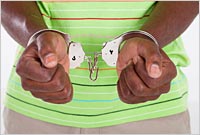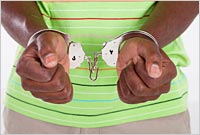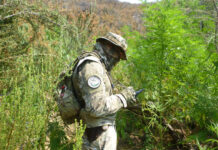March 15, 2019
 Minor marijuana possession offenders will no longer be criminally prosecuted in Hennepin County, Minnesota, according to a new policy announced Thursday by County Attorney Mike Freeman. An estimated 1.2 million people live in the County, which includes the city of Minneapolis.
Minor marijuana possession offenders will no longer be criminally prosecuted in Hennepin County, Minnesota, according to a new policy announced Thursday by County Attorney Mike Freeman. An estimated 1.2 million people live in the County, which includes the city of Minneapolis.
Commenting on the new policy, NORML Deputy Director Paul Armentano said: “The Hennepin County Attorney is to be commended for taking this proactive stance. Branding individuals — many of whom are at an age when they are just beginning their professional careers — as lifelong criminals, and in some cases felons, for minor marijuana possession offenses results in a litany of lost opportunities including the potential loss of employment, housing, professional licensing, and student aid, and serves no legitimate societal purpose. This change is a recognition that marijuana criminalization is a disproportionate public policy response to behavior that is, at worst, a public health concern. But it should not be a criminal justice matter.”
Under the policy, prosecutors will not criminally charge anyone for marijuana offenses involving the possession of up to 100 grams of cannabis. Rather, defendants will be ordered to complete a diversion program or partake in community service. Under state law, marijuana possession offenses involving over 42.5 grams are classified as felony offenses – punishable by up to a five-year prison term and a $10,000 fine.
Under special circumstances, such as if the defendant possessed a firearm or is a habitual offender, prosecutors may still file criminal charges.
Freeman said the policy change was necessary because he believes that the state law is overly punitive and produces racial disparities in incarceration rates. “My job is to determine if people are charged and how to spend my resources,” Freeman said. “Spending resources on these cases is just wrong.”
The County Attorney for Ramsey County (population 500,000), which includes the city of St. Paul, enacted a similar policy earlier this year.
Similar actions have been taken in recent months by prosecutors in Baltimore, St. Louis, Philadelphia, and Norfolk, among other metropolitan areas.











